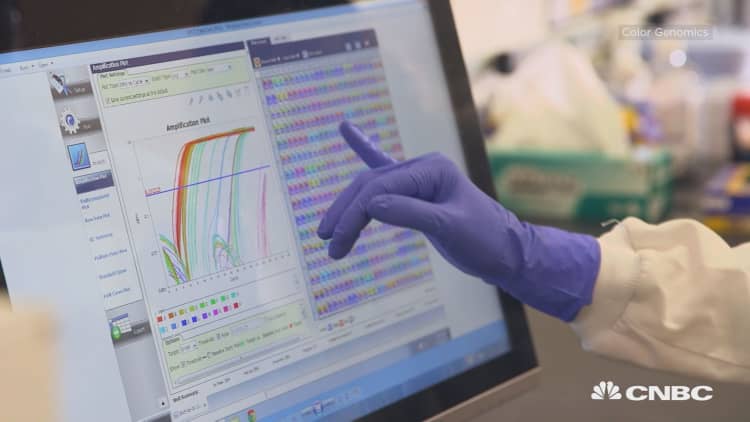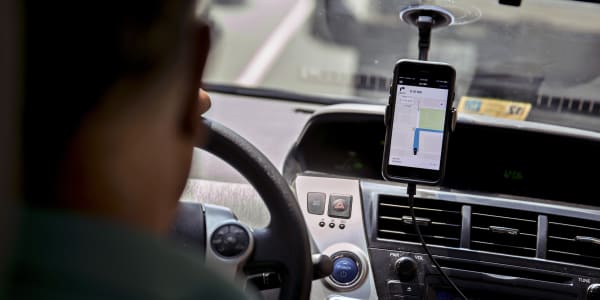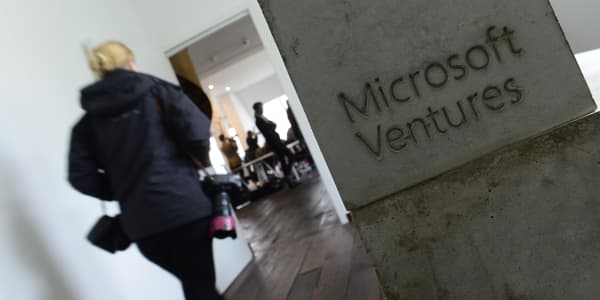
Advances in DNA sequencing technology have made it cheaper and easier than ever before, which has led to a flurry of genetic testing start-ups.
More than 80, according to AngelList. In order to bring the price down even more, companies such as Color Genomics and Counsyl are now building their own sequencing labs and analytics software from scratch, using robots and machine learning to optimize operations.
The San Francisco Bay Area companies both test for inherited cancer risk, like breast, ovarian and colon cancer, and Counsyl also offers a test for family planning and pregnancy.
"Historically, tests like this used to cost over $4,000. The Color test launched at $250," said Othman Laraki, the president and co-founder of Color Genomics, who previously worked at Google and Twitter. He said that reducing manual labor with automation was the main reason they have been able to keep the price so affordable.
While no test will ever be completely error proof, tests run by robots are the closest thing we are ever going to get.Kyle LaphamCounsyl vice president of automation
Some outside hardware is used, like Hamilton's automated liquid handling machine and a robot arm traditionally used to build cars, but for the most part, in-house designed software and custom-built robots power the labs.
Kyle Lapham, Counsyl's vice president of automation, said that the process used to be done by hand and took painstaking precision. He said they now have reduced manual interactions by 90 percent and turnaround time has been cut in half. The machines run 24/7, allowing Counsyl to process hundreds of thousands of tests each year, which each cost $349.
"While no test will ever be completely error proof," Lapham said, "tests run by robots are the closest thing we are ever going to get."
Lapham said the lab can be easily scaled and also could work with other products as well. He said there has been interest from other companies to use the platform that they have developed and that those are "interesting opportunities" for Counsyl to explore.
Counsyl launched its first product in 2009 and has raised $102 million from investors including Founders Fund, Pilot Growth Equity, Goldman Sachs Asset Management and Felicis Ventures. Color launched its first product in 2015 and has raised $60 million from investors including General Catalyst Partners, Khosla Ventures and Formation 8.
The global market for DNA sequencing products is expected to grow to $13.8 billion by 2020, according to BCC Research.





